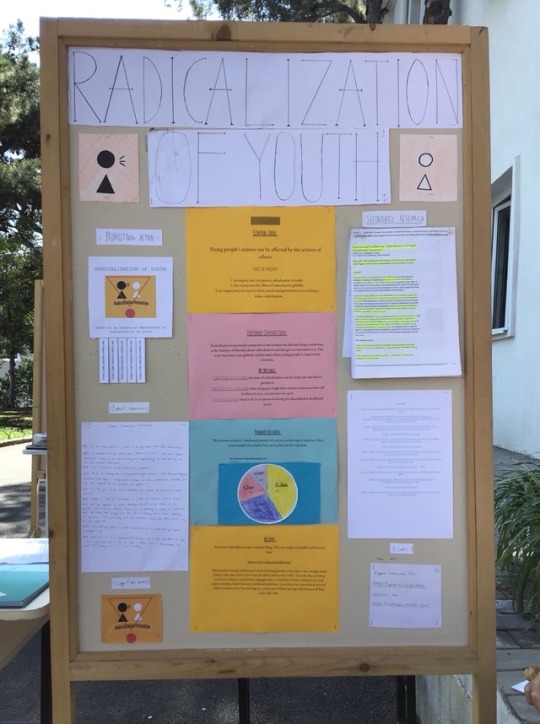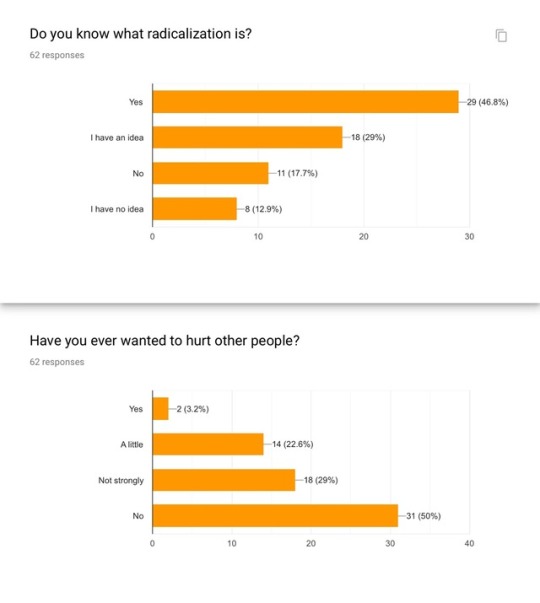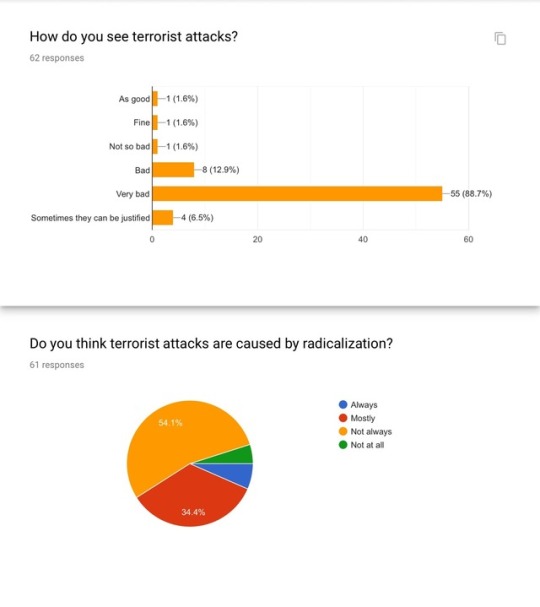Text
How parents can prevent radicalization
Personal connection
I found out about this topic through my dads work. This topic interested me because this is a main problem now with the youth or the next generation and I want to somehow help or participate in making the world a more peaceful and better place.i sighted up to do this coffee morning because parents are the people who raise their child and can teach the better ways of living other than being violent and extreme.
Here are some ways you can prevent radicalization as a parent:
Education:
One of the most important things is education. From an early age people need to confidence to engage with others and to have confidence as well as know where to geo for help when they need it.
Another thing is to also educate your children about diversity and religion so they keep an open mind so when they are faced with a challenge they can be thebigger person rather than being led down a path because they know no different.
technology:
It is also important that you (parents) know how technology works so you can see what we are doing and help us avoid danger. To add to that if you want to protect your child even more you could put a filter so that can not look at things that could be a potential radicalization trigger.
The most important: trust
The most important thing is for us children to trust you the most. Therefore if we are having trouble you are the first we go talk to and you then know what you can do to help us not to get into dangerous situations and not get involved with radical people.
0 notes
Text
Radicalization of Youth
2019 PYP Exhibition
Radicalization
of Youth
Intro
As part of the 2019 PYP Exhibition I have decided to conduct an inquiry into radicalization and violent extremism. This I want to do with informing people by writing this article/report and posting it on my website. My target audience is 12+ because radicalization is a complex topic but if you are interested and under this age this report may also be of interest to you. The lines of inquiry are:
An inquiry into the radicalization of youth.
An inquiry into the effects of radicalization globally.
An inquiry into the ways in which parents and governments are working to reduce radicalization.
What is radicalization:
What is radicalization? Radicalization is the act or process of somebody influencing a person to adapt the same violent views and radical positions ( get influenced to have the same extreme violent positions) like them. This happens because young people’s actions can be affected by the actions of others ( my central idea) People like terrorists influence others to follow in their footsteps, that is called radicalization.
An inquiry into the radicalization of youth:
When something is wrong in children’s life it can affect their choices/decisions. Children are the easiest to be radicalized when they’re vulnerable. Children get vulnerable when something bad
happens in their life,for example, they are being bullied, have no friends, they think their parents don’t care about them (because they don’t talk enough) and don’t have anyone to talk to because nobody would understand, they lost an important person or school is too hard.
An inquiry into the effects of radicalization :
As you know radicalization can cause terrorist attacks, school shootings and overall extremism.
Here are some examples of terrorist attacks done by children:
The Columbine High School massacre done in 1999 by Eric Harris and Dylan Klebol with 13 victims
Boston Marathon bombing in 2013 by Dzhokhar Tsarnaev and Tamerlan Tsarnaev with 3 victims
Terrorist attack plan in October 2016 done by Sydney teenager
An inquiry into the ways in which parents and governments are working to reduce radicalization:
Most (not all) parents talk to their children about their (the children’s) problems. This makes the children feel that they have somebody to talk to and have a slimmer chance of being radicalized. On google there are many websites about how parents can prevent radicalization, for example:
Talk to your child about staying safe online.
Keep an eye on the sites your child is visiting.
Use parental controls on browsers, games and social media to filter or monitor what your child can see.
I know that parents do this from talking to fellow children about it and if you are a parent and don’t (do this ) you can try.
Whereas some governments with good economy are building parks or good schools but not only because of radicalization, it helps other people too.
How children can get radicalized:
There are two ways children can get radicalized - online and in person. When it’s online there is one technique that is used the most. The terrorists tweet about what they do, looking like normal people and when you start texting them they tell you how great their life is so you want to be like them. They choose people that have been through a lot and or feel sad, so first the “radicalizers” confirm the child and then tell him to join their gang.
Reasons people get radicalized:
Reasons people join violent extremist groups vary widely; some young people are looking for something new or are insecure and looking for a place to belong. Many already believe in some form of religion (have the same opinion) or are simply looking for a new excitement or a different identity. They think their life is boring and need something to change. This is the main problem: the youth are bored. That is why they decide to go join extremist groups such as ISIS/Al Qaeda or shoot other people and be “famous” for it.
How do people act when radicalized?
There are many things people do when they are being radicalized. But since my exhibition is about the radicalization of youth this is how children (tweens and teen) act when radicalized:
hang out with a different group of people and ignore their previous friends
have an increased anger level
get into fights more often (verbal or physical)
talking from a scripted like speech
don’t want or can’t discuss their views
suddenly having a disrespectful attitude
being secretive with their internet use
isolating themselves
If a person does one of these things it does not necessarily mean he/she is being radicalized. When showing more there is a bigger chance. If you spot somebody doing these things report it to someone because even if they are not being radicalized they may have different issues going on in their lives.
My primary research
I made a survey that had 62 responses (all from people 10+) so I would say it is a pretty good cross-section of society and therefore some good data was produced. Here are some survey results.
From 62 people surveyed 29 people (46.8%) knew what radicalization is, or believed they knew what it was. I was also (pleasantly) surprised to find out that 46 people (74.2%) said they would definitely not harm a person if other people said it was a good idea. 88.7% of people said they are not easily influenced which also came as a surprise to me. Another thing would be that 1 person (1.6%) said that terrorist attacks are good. But I am not sure if they knew what terrorist attacks are.
Here are things people can do to help:
Building parks with trees.
Making sure the country has good schools.
Building fun parks.
Persuade young people to get pets or just take care of them for a month from a shelter.
Try to reach people with social media campaigns.
Make “meeting new people parks/other places”.
Have online psychiatrics on social media for people to text.
If you are working in the government or have a firm that builds parks or are a physiatrist and interested to help people please do. It can prevent young people from getting radicalized but also it might help for example people with children to take them to parks or building good schools helped children learn (obviously).
0 notes
Text
WEEK 4 THURSDAY
Now is Thursday 4.4.2019, week 4 of my exhibition. This week I have prepared questions for experts which I will be interviewing. Here they are:
Q1. What is the key factor that triggers radicalization.
Q2. How, if possible do you “de-radicalize” a person?
Q3. Are all terrorist attacks caused by radicalization?
Q4. Do you think school shootings are a form of terrorism?
Q5. How did you find out about radicalization?
Q6. What is something normal people (as in not experts) can do to decrease radicalization.
Q7. What is one “most popular” reason/factor a person becomes radicalized?
Q8. What do you think governments in high-risk countries (eg. Syria,Yemen,Nigeria,Afghanistan,Pakistan) should be doing to ensure safety and decrease violent extremism?
If you are an expert please write the answers in the comments. Or if you have other good questions I could add please also write them.
Video interview link: https://youtu.be/DcrBoORaIdI
undefined
youtube
1 note
·
View note




